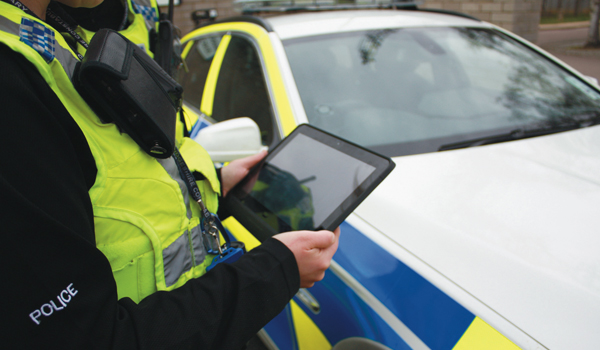West Midlands Police rolls out mobile fingerprint scanners
Hand-held fingerprint scanning devices that allow officers to ID crime suspects on the streets in seconds are to be introduced by West Midlands Police following a successful pilot.

Hand-held fingerprint scanning devices that allow officers to ID crime suspects on the streets in seconds are to be introduced by West Midlands Police following a successful pilot.
The pocket-sized devices are satellite-linked to a national fingerprint database and instantly alert officers if the scanned prints belong to a person wanted by police or the courts. Officers can then cross-reference the information against the Police National Computer (PNC).
The force said it plans to roll out 70 of the hand-held Mobile Identification (MobileID) devices.
The MobileID project is part of the National Policing Improvement Agency`s (NPIA) Information Systems Improvement Strategy (ISIS), which aims to transform the way police technology is used and managed nationally.
The NPIA started making the devices available to police forces in England and Wales in July 2011.
Police in east Birmingham have been trialling the technology for several months and West Midlands Police said it has proved hugely successful.
On one occasion, officers responding to complaints of a nuisance beggar discovered the man was wanted in connection with a murder in Spain after taking his prints digitally.
According to the force, the scanners have cut bureaucracy and saved countless police hours by keeping officers out on the streets rather than hauling suspects through potentially protracted custody procedures.
West Midlands Police Chief Inspector Darren Walsh is leading the project. He said: Lets take the example of a warrant executed at an address. We may find several people inside the scanners tell us immediately whether any of them are wanted for criminal offences. It also means suspects cant try providing false details because the device confirms their identity.
Traditionally, if officers had suspicions about an individual we`d need to take them to a police station, go through the custody process and fingerprint them at the station which could take hours. The MobileID kits quickly confirm whether an arrest is necessary and frees-up officers to be on the streets protecting the public.
In east Birmingham, the scanners have enabled Proactive Teams to make swift arrests of suspected burglars plus numerous people whod failed to turn-up for court appearances.
Sergeant Gerry Carey, explained: Wed traced a man wanted for a string of burglaries to an address in Nechells. One morning, officers spotted a male fitting the suspects description leaving the address.
He gave details but was vague about his date of birth; it came back as no trace on the national computer. The PCs werent convinced and so scanned his prints which proved he was our man.
Since the trial started weve had countless examples of where the device has been used to catch out lying criminals whove tried avoiding arrest by giving false details.
Fingerprints scanned using MobileID are not stored and are removed once the search is complete.
Chief Insp Walsh added: Its used to compare information already on the database and then deleted no information is kept for use at a later date.
The NPIA says MobileID will save time by establishing a persons identity at the scene and within minutes, which benefits both the public and the police. Ultimately, through better identifications, MobileID will increase confidence, make communities safer and increase police time on the beat.


